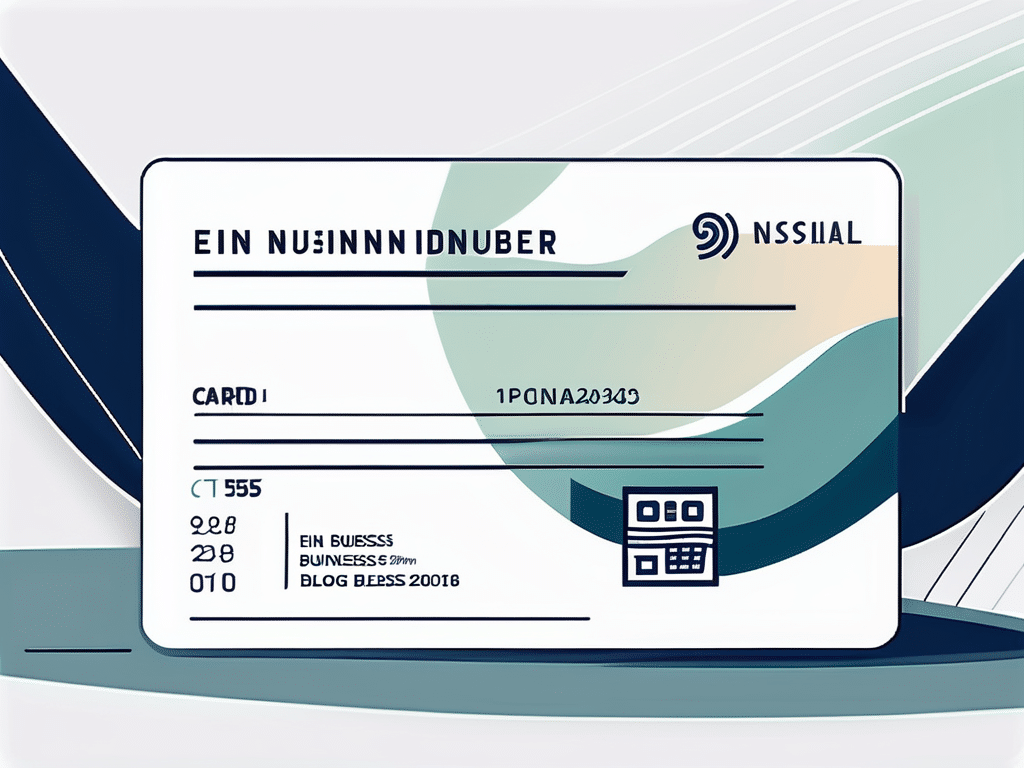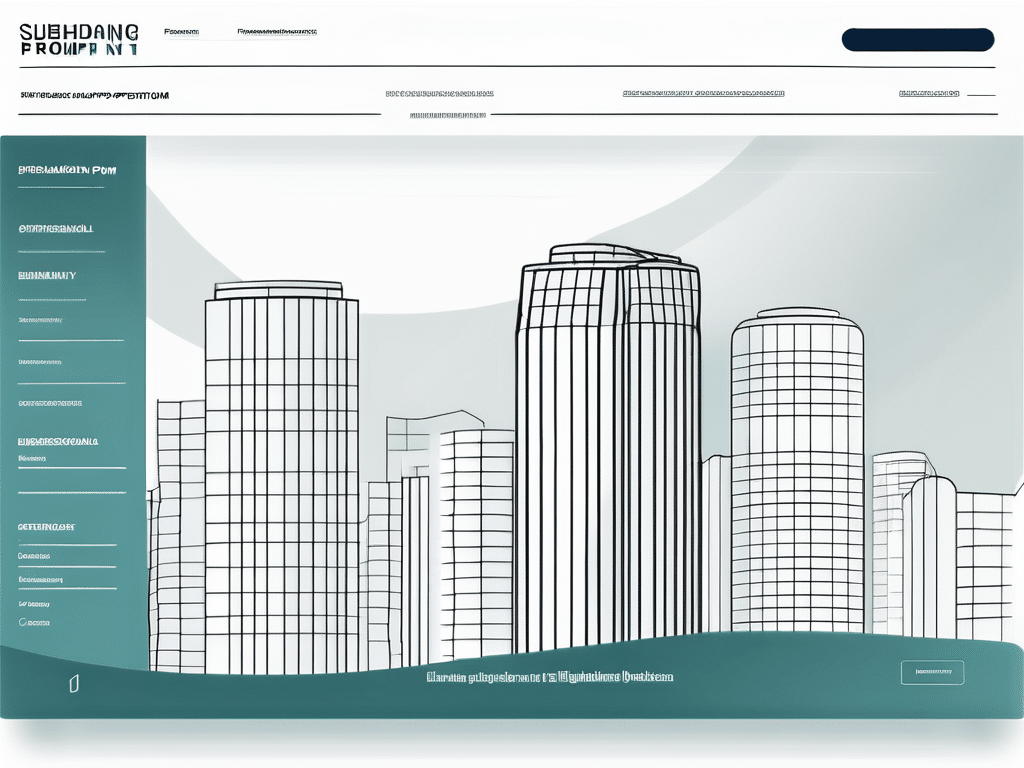In order to obtain an Employer Identification Number (EIN) for your business, it is important to understand the purpose and significance of this unique identifier. An EIN is a nine-digit number issued by the Internal Revenue Service (IRS) to identify your business for tax purposes. Let’s explore the importance of having an EIN and the eligibility criteria for obtaining one.
Understanding the Importance of an EIN
An EIN serves as the social security number for your business. It is necessary for various business activities such as hiring employees, opening bank accounts, filing tax returns, and obtaining business loans. A valid EIN helps you establish a professional identity and separate your personal and business finances.

Furthermore, obtaining an EIN is a crucial step in the process of legitimizing your business entity. It not only provides credibility and trustworthiness in the eyes of potential partners and customers but also ensures that your business is recognized as a separate legal entity, shielding your personal assets from business liabilities.
What is an EIN?
An EIN is a unique nine-digit number assigned to businesses by the IRS. It is also known as a Federal Tax Identification Number (FTIN) or a Taxpayer Identification Number (TIN). This number helps the IRS track your business activities and ensure compliance with tax laws.
Moreover, the EIN system was established by the IRS to streamline the process of tax administration for businesses. By assigning a specific identifier to each business entity, the IRS can easily monitor tax obligations, track financial transactions, and prevent tax fraud and evasion.
Why Your Business Needs an EIN
Having an EIN offers several benefits for your business. It not only facilitates tax reporting but also allows you to establish business credit, apply for licenses and permits, and participate in government contracts. Additionally, an EIN enables you to hire employees and contribute to their payroll taxes.
Furthermore, an EIN is often required when opening a business bank account, applying for business loans, or engaging in certain financial transactions. Without an EIN, your business may face limitations in conducting operations that require official identification and verification of your business entity.
Eligibility Criteria for an EIN
Before applying for an EIN, you need to determine if your business is eligible to receive one.

Obtaining an Employer Identification Number (EIN) is a crucial step for businesses looking to establish their official identity with the Internal Revenue Service (IRS). This unique nine-digit number is assigned to businesses for tax filing and reporting purposes. Understanding the eligibility criteria for an EIN is essential to ensure a seamless application process and compliance with IRS regulations.
Who Can Apply for an EIN?
Most businesses are eligible to apply for an EIN. This includes sole proprietors, partnerships, corporations, limited liability companies (LLCs), estates, trusts, and non-profit organizations. However, certain individuals such as foreign nationals, ITIN holders, and individuals with a Social Security Number cannot apply for an EIN solely to obtain an Individual Taxpayer Identification Number (ITIN).
Business entities that are required to file tax returns, have employees, operate as a partnership or corporation, or withhold taxes on income paid to a non-resident alien must obtain an EIN. This unique identifier helps the IRS track business activities, ensure accurate tax reporting, and prevent identity theft.
Necessary Information for EIN Application
When applying for an EIN, you will need to provide specific information about your business. This includes your legal business name, business address, type of business entity, and the reason for applying for an EIN. It is important to have all the required details ready to ensure a smooth application process.
Additionally, you may be asked to provide the names and Social Security Numbers of the responsible party and principal officers of the business. The IRS uses this information to verify the legitimacy of the business and its owners. Ensuring the accuracy of the details provided in the EIN application is crucial to avoid delays or rejections in the processing of your EIN.
Step-by-Step Guide to Applying for an EIN
There are different methods you can use to apply for an EIN, including online, mail, or fax.

Before diving into the application process, it’s important to understand what an Employer Identification Number (EIN) is. An EIN is a unique nine-digit number assigned by the Internal Revenue Service (IRS) to identify a business entity. It is used for tax purposes, opening a business bank account, applying for business licenses, and hiring employees.
Applying Online
Applying online for an EIN is the quickest and most convenient option. The IRS provides an online application form that you can complete in a few simple steps. To apply online, you must have a valid Taxpayer Identification Number (SSN, ITIN, or EIN) to be the responsible party. Once your application is submitted and validated, you will receive your EIN immediately. Remember to keep a copy of your EIN confirmation for future reference.
One of the advantages of applying online is the immediate confirmation of your EIN, which allows you to proceed with your business activities without delay. Additionally, the online application is available 24/7, making it convenient for business owners to apply at their own pace and time.
Applying via Mail or Fax
If you prefer not to apply online, you can also submit Form SS-4, Application for Employer Identification Number, by mail or fax. When applying by mail, it’s crucial to ensure that the form is filled out accurately and completely to avoid any delays in processing. It may take several weeks to receive your EIN using these methods, so make sure to allow ample time for processing.
While the online application is the fastest way to obtain your EIN, the mail or fax option provides an alternative for those who may not have access to the internet or prefer traditional methods of communication. Whichever method you choose, obtaining an EIN is an essential step for establishing your business entity and ensuring compliance with tax regulations.
After You’ve Applied: Next Steps
Once you have your EIN, there are a few important steps to take to ensure its proper use and security.
After you have successfully obtained your Employer Identification Number (EIN), it’s time to delve into the world of business operations with this crucial identifier in hand. Understanding how to maximize the utility of your EIN can streamline your financial processes and enhance your credibility as a business entity.
How to Use Your EIN
When you receive your EIN, make sure to include it on all your business documents, such as tax returns, banking forms, and invoices. It is crucial to use your EIN consistently and accurately to avoid any issues with the IRS or other government agencies.
Integrating your EIN into various financial and administrative documents is not just a matter of compliance; it also serves as a fundamental element of your business identity. By imprinting your EIN on official paperwork, you establish a clear link between your business activities and this unique identifier, facilitating seamless communication with financial institutions, regulatory bodies, and potential partners.
Keeping Your EIN Secure
Just like your social security number, it is important to keep your EIN secure. Do not share it indiscriminately and ensure that it is only accessible to authorized individuals within your business.
Safeguarding the confidentiality of your EIN is paramount in protecting your business from potential fraud or identity theft. Implementing robust security measures, such as restricting access to sensitive documents containing the EIN and educating your team on the importance of confidentiality, can fortify your business against unauthorized usage of this critical identifier.
Troubleshooting Common EIN Issues
In case you encounter any problems with your EIN, it is essential to be aware of potential solutions.
Understanding the nuances of your Employer Identification Number (EIN) is crucial for the smooth operation of your business. From tax filings to opening a business bank account, the EIN plays a vital role in various financial transactions and legal requirements.
Lost or Misplaced EIN
If you have misplaced your EIN or cannot locate it, you can retrieve it by contacting the IRS Business and Specialty Tax Line. They will help you retrieve your EIN by verifying your identity and providing the necessary details.
It is advisable to keep your EIN in a secure location along with other essential business documents to avoid any inconvenience in the future. Regularly reviewing and updating your business records can also help in ensuring that your EIN is easily accessible when needed.
Changes to Your Business and Your EIN
If your business undergoes certain changes, such as a change of business entity or a change in ownership, you may need to apply for a new EIN. It is important to be aware of these changes and understand the circumstances under which a new EIN may be required.
When making significant changes to your business, consulting with a tax professional or legal advisor can provide valuable insights into the implications for your EIN and any necessary steps to take. Proactively addressing these changes can help in maintaining compliance with IRS regulations and avoiding potential penalties.
Obtaining an EIN for your business is an important step in establishing your professional identity and complying with tax regulations. By following the eligibility criteria and the step-by-step guide outlined above, you can successfully obtain an EIN and set your business on the path to success


